One of the favorite treats of both adults and children is yogurt. This product is obtained by adding fermentation microorganisms to milk - thermophilic streptococcus and Bulgarian bacillus. This distinguishes it from other dairy products and provides its beneficial effect. At what age can you start giving your child yogurt? What is the benefit for the child of this product? Can it negatively affect the children's body? How to cook healthy yogurt at home? Is it possible to feed a child with store yogurt and how to choose the right quality yogurt for kids?
Yogurt - how is it useful?
- Yogurt is a source of protein that is easily absorbed in the body of the child;
- This fermented milk product has a lot of calcium, which is important in bone formation and tooth strengthening;
- There are a lot of vitamins A and B in yogurt; it contains potassium, chlorine and phosphorus. Yoghurts contain many vitamins and minerals important for the growth of the child;
- Probiotics in this product have a good effect on digestion. and immunity Yogurt good to eat after taking antibiotics, it restores the microflora in the intestines;
- If you eat yogurt every day, interferon is produced in the body, and it increases the protective functions of the body;
- Children's yogurt can be liquid (it can be drunk) and thick (pectin is added to it), which makes it possible to diversify the baby's feeding with this product.
When can yogurt be dangerous?
Yogurt alone cannot harm a child, but since it is a perishable product, there is a risk of feeding your baby an expired and spoiled yogurt. Always carefully check the date of manufacture of the product and the expiration date..
There are so many sour-milk products in stores that in such an abundance one can accidentally choose yogurt that is not intended for children. One must be careful not to make such mistakes.
Is there an allergy to yogurt?
A baby may be allergic to yogurt in two cases:
- if the fermented milk product contains berries and fruits;
- if the baby is allergic to cow's milk protein.
At what age are children offered yogurt?
For babies who are breast-fed, pediatricians recommend giving yogurt from 8 months.Babies who are breast-fed, this product is introduced into the lure from 9 months.
How to enter the diet?
The first acquaintance of the crumbs with yogurt is best done during breakfast, offering him one spoonful of a new product. This is done so that during the day it is possible to assess the condition of the child - if there is an allergy to yogurt. If there is no reaction, then in the future yogurt is given to the child along with fruit complementary foods, during the afternoon snack. Usually this is the fourth feed per day. Yogurt can also be combined with cookies and cottage cheese.
Yogurt without the mark "for children" with live bacteria is given to the child after two years. What portion of yogurt is recommended for children at an early age? The daily volume of this product should not exceed half the norm of all fermented milk supplements received by the child. Children under 1 year old are given 80-100 ml of yogurt, and at the age of 1 to 3 years, the portion is increased to 200 ml.
How to cook yogurt yourself
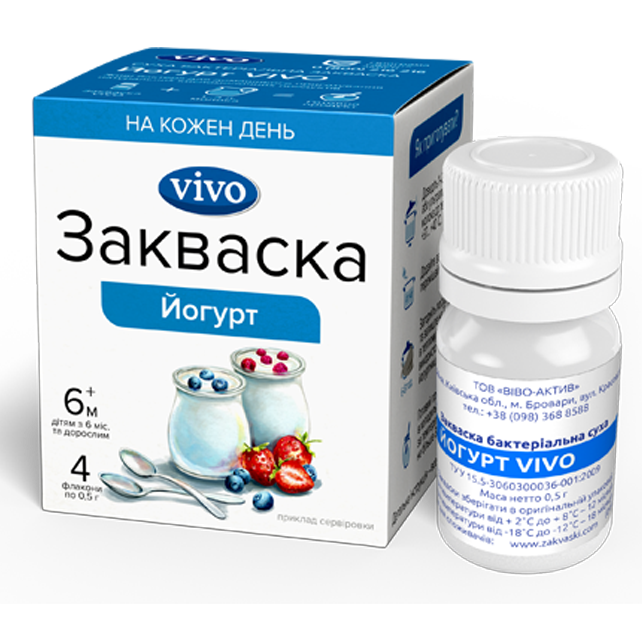
To cook yogurt, you need to buy a special sourdough. Still need fresh boiled milk. It is advisable to sterilize the dishes in which you will cook yogurt.
In the yogurt maker
Cool boiled milk to a temperature of 38-40 degrees, not higher, add the sourdough. At a temperature of more than 40 degrees, the bacteria will not be able to multiply and yogurt will not work. After adding the leaven to it, mix thoroughly. Pour milk into sterile containers. Now the yogurt maker will do her job. It constantly maintains the desired temperature at which bacteria actively multiply. The main advantage of the yogurt maker is the long-term maintenance of the temperature necessary for the “work” of the starter microorganisms.
The process of preparing the product in a yogurt maker takes approximately 8-10 hours. You can put milk at night, and in the morning you can eat yogurt. Store it in the refrigerator for no longer than 4-5 days. It is better for the child to give this product in the first two to three days after ripening - the longer the yogurt is stored, the less beneficial bacteria are in it.
Cooking yogurt in a yogurt maker:
In a slow cooker
You can make yogurt in a slow cooker, if it has the “Heat Maintenance” mode. We boil 2 liters of milk, then cool it to the desired temperature (38-40 degrees). Add leaven to it. Closing the appliance with a lid, set it to the desired “yogurt” mode. Cooking time - 8-10 hours. When the yogurt is ready, pour it into glass containers and put it in the refrigerator. You can eat it after 2-3 hours.
Homemade yogurt in a slow cooker:
In a thermos
In the milk boiled and cooled to 40 degrees, add the leaven, mix. Pour it into a thermos pre-dousing the thermos with boiling water. This must be done to clear the thermos of pathogenic bacteria. We close the thermos, wrap it with a towel and put it in a warm place - near the battery in the winter or in a sunny place in the summer.
After 4-7 hours, the product in a thermos is usually ready. Now you need to pour the yogurt into sterile glasses or jars. Then we send it to the refrigerator for at least a couple of hours. In a cold environment, bacterial growth stops, preventing further mowing of milk. In yogurt, you can put pieces of fruit, a little jam or syrup.
How to cook homemade yogurt in a thermos:
Home-made yogurt for children up to a year - recipes
Well, if the crumbs liked the taste of yogurt without additives. However, some babies enjoy sour-milk products, if you diversify their taste with fruits. What ingredients do homemade or shop yogurt for baby food go with?
- With apples or applesauce.
- Peach or peach puree.
- Pumpkin
- Pear.
- Banana
- Curd cheese.
- Cookies.
Important! When you mix yogurt with fresh fruit, you need to eat it right away, and you can add canned fruit puree from the store in advance.
Seasonal Fruit Salad with Yogurt
[sc name = ”rsa”]
Yogurt is a great dressing for fruit salads.Since it is better for children to give only seasonal fruits, we will conditionally divide the salads into summer and winter. Such a delicacy can be pampered for children older than 1 year. Let's look at some recipes for fruit salads with yogurt.
Add fruit to your taste and remove those that are not at hand. Fruit salad always turns out delicious!
The method of preparation of summer salad:
You will need:
- a small apple;
- pear;
- plum - 3 pcs.;
- melon - 1 slice;
- grapes are a small handful.
Fruits are thoroughly washed and peeled and peeled. Cut the pulp into small cubes, season the salad with yogurt. If you need to sweeten the dish, add a little honey.
Winter fruit salad:
You will need these ingredients (1 each):
- an Apple;
- banana;
- kiwi;
- persimmon;
- mandarin.
Remove the peel and seeds from the fruit, cut the pulp into cubes. Lay out the fruit in layers, seasoning each with yogurt. You can sprinkle a little sugar on each layer.
It is best to treat the baby with such a salad as soon as they have prepared it so that the fruits do not lose their beneficial properties. To increase appetite and to interest the child, you can try to arrange a new dish in the form of a house, car or some kind of animal.
How to make yogurt taste excellent, and what healthy supplements can I use?
Dried fruits. Raisins and dried apricots are very useful in themselves. If you add them to yogurt, then it will not lose its value and will find a sweet touch. Moreover, children always like to catch dried fruit from yogurt and its absorption turns into a kind of game.
Vanilla. It has an excellent aroma, from which many are delighted. If you add a little vanilla to the finished yogurt, it will be incredibly fragrant and mouth-watering. The main thing is not to overdo it, otherwise the product will be slightly bitter.
Nuts. Nuts are rich in fats, which are so necessary for a growing child's body. They help to make yogurt not only tastier, but also more satisfying. Cashews, almonds, hazelnuts and walnuts will be an excellent healthy supplement.
Muesli. Also able to change the taste of yogurt and make it more satisfying. Flakes become soft and melting, which is liked by so many children.
What sourdough to use?
If you want to prepare healthy yogurt for your baby, do not use ready-made store yogurt as a starter, as the product fillers and microflora will give you unpredictable results. Buy only a special yeast that contains the bacteria you need to make yogurt.
Buy sourdough in a pharmacy (or store), check its expiration date. Make sure it is stored in the refrigerator. When preparing yogurt for a child up to a year, always take a new sourdough.
There are also starter cultures from which other fermented milk products are prepared - streptosan, bifivitis and vitalact. They contain other bacteria. Sometimes pamper your kids with products made from these starter cultures for a change.
Choosing a good yogurt for a child in a store
- Take a look at the label - is the product labeled with the word "yogurt".
- Read the composition of the product - yogurt for a child should be made only from milk and sourdough. If flavors, preservatives and thickeners are present, refuse the purchase.
- Yoghurts containing pieces of fruit can be bought, but they must be given carefully. The baby may have an allergy. It’s best to add purchased fruit puree to plain yogurt without additives.
- For a small child, especially the first year of life, it is better to choose milk bold or classic yogurt with a fat content of up to 3.2 g. For a child from 2 to 5 years old, classic, milk-cream and cream-milk yogurt are suitable. Low fat and low fat yogurts are not products of choice for children and are used only on the advice of a doctor.
- Check the expiration date. Allowed value is 5-7 days. Yogurts that can be stored for longer contain preservatives. Do not buy a product that can be stored without a refrigerator.
- Yoghurts of the manufacturers known today - Actimel, Miracle, Ehrmann, Rastishka, Immunele, etc. do not apply to baby food. They have a longer shelf life, they include dyes and flavors identical to natural ones. They are allowed to be given to children from 3 years of age, this is indicated on the product packaging.
- If yogurt is positioned as a bioproduct, its label should contain data on the concentration of microorganisms. Typically, by the end of their expiration dates, their content should be a minimum of 107 CFU.
Agusha
Under the brand name “Agusha”, 2 types of yogurt are produced for children under 1 year old.
- viscous to eat with a spoon;
- drinking that can be drunk from a cup or from a bottle.
Both are recommended from 8 months. Agusha is distinguished by the widest and widest assortment of children's yoghurts.
Shelf life in yogurt Agusha 14 days.
Topic
Tyoma has only drinking yoghurts. Tyoma bio-yogurts are recommended from 8 months.
Ingredients: whole milk, powdered and skim milk, sugar, fruit puree and juice, thickener (corn starch), natural dye (carrot juice), acidity regulator (concentrated lemon juice), Tyoma bio-yogurt contains 3.2% protein, 2.8 % fat, 11.5%, sugar 5.8%, calorie content 84 kcal.
Introduction to the child’s menu of yogurt is something that can not be neglected, because the benefits of this product are obvious. The Bulgarian bacillus contained in it acts destructively on various pathogenic bacteria of the body. Therefore, yogurt can be called a natural probiotic that protects the health of your crumbs.
Tips for consumers: how to choose the right yogurt?
Myths about yogurt - the benefits and harms of yogurt for the child’s body
Although yogurt has long been a well-known product, there are many myths around it. Consider the most popular of them.
Myth 1.Yogurt is a source of vitamins lacking in the body. It is not true. Yes, yogurt contains vitamins necessary for the children's body, but their amount is very small. To replenish the body with the missing vitamins, the child will have to drink yogurt in liters.
Myth 2. Live yogurt can have a long shelf life. This is a fallacy for modern mothers who believe that technology has taught a quality product not to go bad for a long time. Not true. All-natural yogurt can be consumed for a week and only if it is properly stored. After this period, all the beneficial bacteria in the dessert die and can no longer be called alive. Long-term storage yogurts contain preservatives, therefore they are not natural and are not recommended for use by children.
Myth 3. Yogurt is rich in calcium, like all dairy products. This is not entirely true. Calcium enters the body of a cow, giving milk, with food. If it is not in the grass and feed, then it is not in milk, and it will not be in yogurt. Therefore, in order for the milk you bought (and, accordingly, yogurt) to contain calcium, you must know for sure that the cow received it, for example, with special food.
Myth 4. Yogurt is good for the kidneys. In fact, dairy products really cleanse the body of toxins and toxins, but sour-milk yogurt is not recommended for use by children with sand or kidney stones. Nephrologists in this case require completely excluding it from the diet.
Myth 5. Yogurt should not be taken when urates are detected. On the contrary, the yogurt should be drunk by the children in whom they were found, since fermented milk products best remove urate from the body.
Myth 6. Any yogurt benefits the body. The biological value of yogurt is reduced to zero after pasteurization, so heat-treated yoghurts have absolutely no benefit - they no longer have living bacteria.
Myth 7. Yogurt should not be taken with diarrhea. This is another common misconception. After restoring the water balance, it is best to start eating with yogurt, which will help restore a healthy intestinal microflora.
Myth 8. Sweet yogurt is just as healthy as filler-free yogurt.Sugar and bacteria can react with each other, so it’s best to eat sugar-free yogurt.
Myth 9. Yogurt can be replaced with two to three meals a day. Do not get carried away with yoghurts - the children's body should receive nutritious nutrition rich in proteins, fats, carbohydrates, micro and macro elements. Yogurt cannot fully replace other foods.

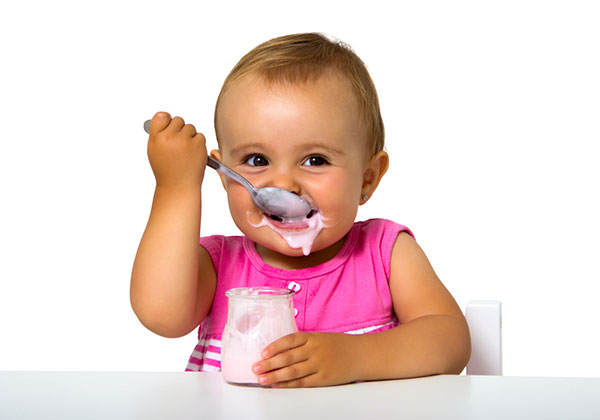

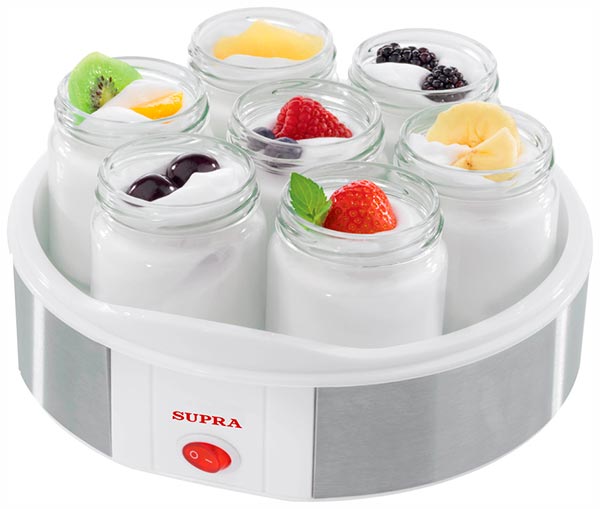
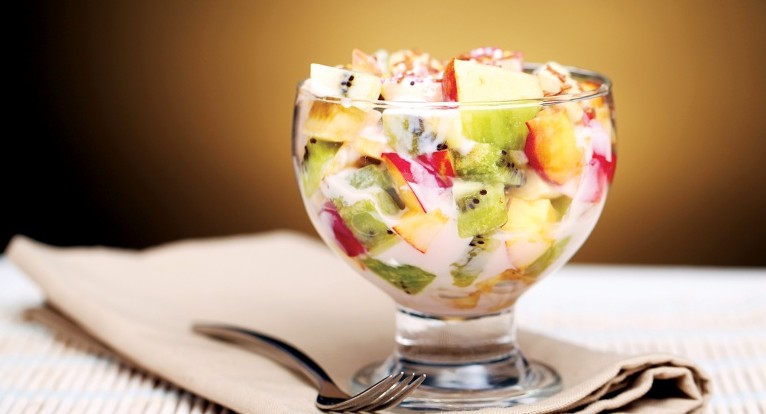
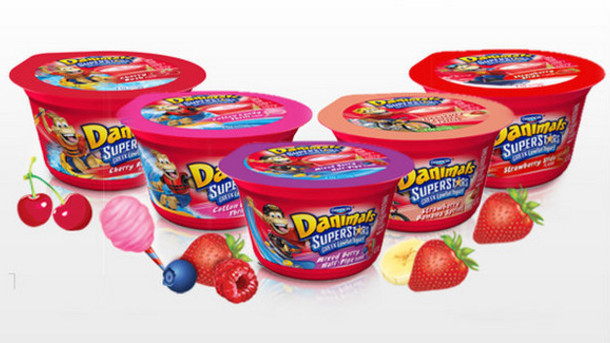
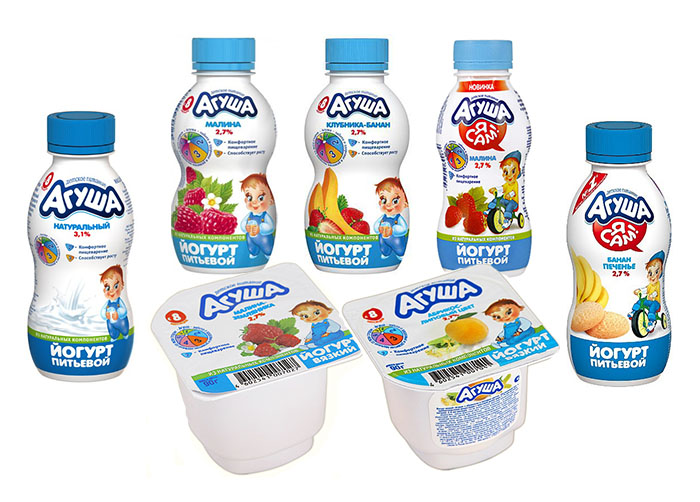
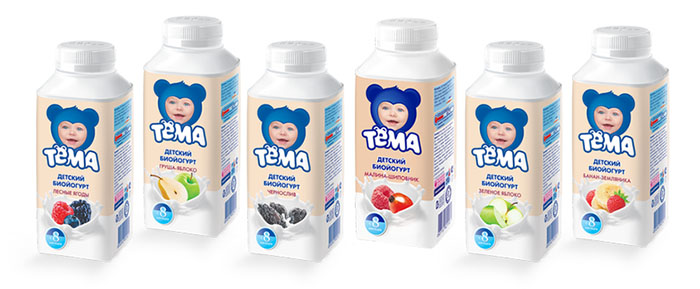

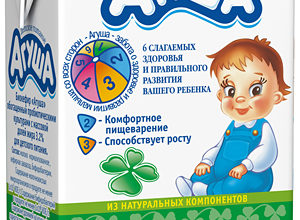



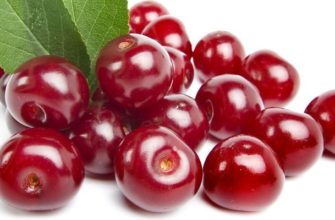


Regarding the fact that yogurt can be dangerous for a child only if it is spoiled or expired - this is not entirely true when it comes to a purchased product. At first, I myself thought about introducing small exactly one of the finished products - after all, they write on the packaging since 6 months. You can give, but we were 11 already. Fortunately, I thought of first consulting with our pediatrician - she, although the lady is not very young, is in the subject of everything that happens in her field of activity. She told me to pay attention to the composition of “Themes” and the like. Safe and good fermented milk products should contain nothing but sourdough and milk. And what do you think I saw on the label? And starch, and substitutes, and flavors, and dyes. The desire to feed such a child disappeared instantly. I already thought that milk is not for us at all before we go to school, but the beloved doctor suggested a way out: to cook at home on our own with good milk and high-quality sourdough. I was delighted, because you can buy starter for yogurt in many stores (I generally keep quiet about milk), but it wasn’t there. She advised her not to give classic yogurt (with a Bulgarian stick) which was not given before 2 years. And for smaller crumbs, she said that we should choose a starter culture with bifidobacteria. Here my wanderings in all kinds of shops began (offline and online). I found quite quickly on the website the Bakzdrav - that's what Bifidum is called there. I ordered only 5 pieces of starter culture for the sample - I quickly regretted that it was not enough. Dotsya eats with pleasure) I make in a slow cooker in glass jars (there is no yogurt maker yet) - quickly and conveniently. Now I’m still thinking about kefir - but they also advised me after a year already.
I also consulted with our pediatrician on baby food. When the time came to introduce yoghurts, first I took them in a dairy kitchen, there was such a short period. Then the kitchen was closed, I began to buy bio-yogurt topic. And now we are already the 4th year old and we are happy to eat up the little banner. The myths about store yogurts are different, but you can’t believe everything. I trust our doctor, who is confident in the natural composition of the leaflet (she went to continuing education courses). In addition, Roskontrol and other organizations periodically conduct testing of children's store products. Rastishka, dark, agusha showed good results on the natural composition and living bacteria were found in them. There are no preservatives and e-shek.
You can make yogurt yourself, if you want, our grandmother sometimes tries to do it in a thermos, but the taste is so-so. And I don’t see such a need at all, it’s better to spend time after work on communicating with the child and on the most necessary things.